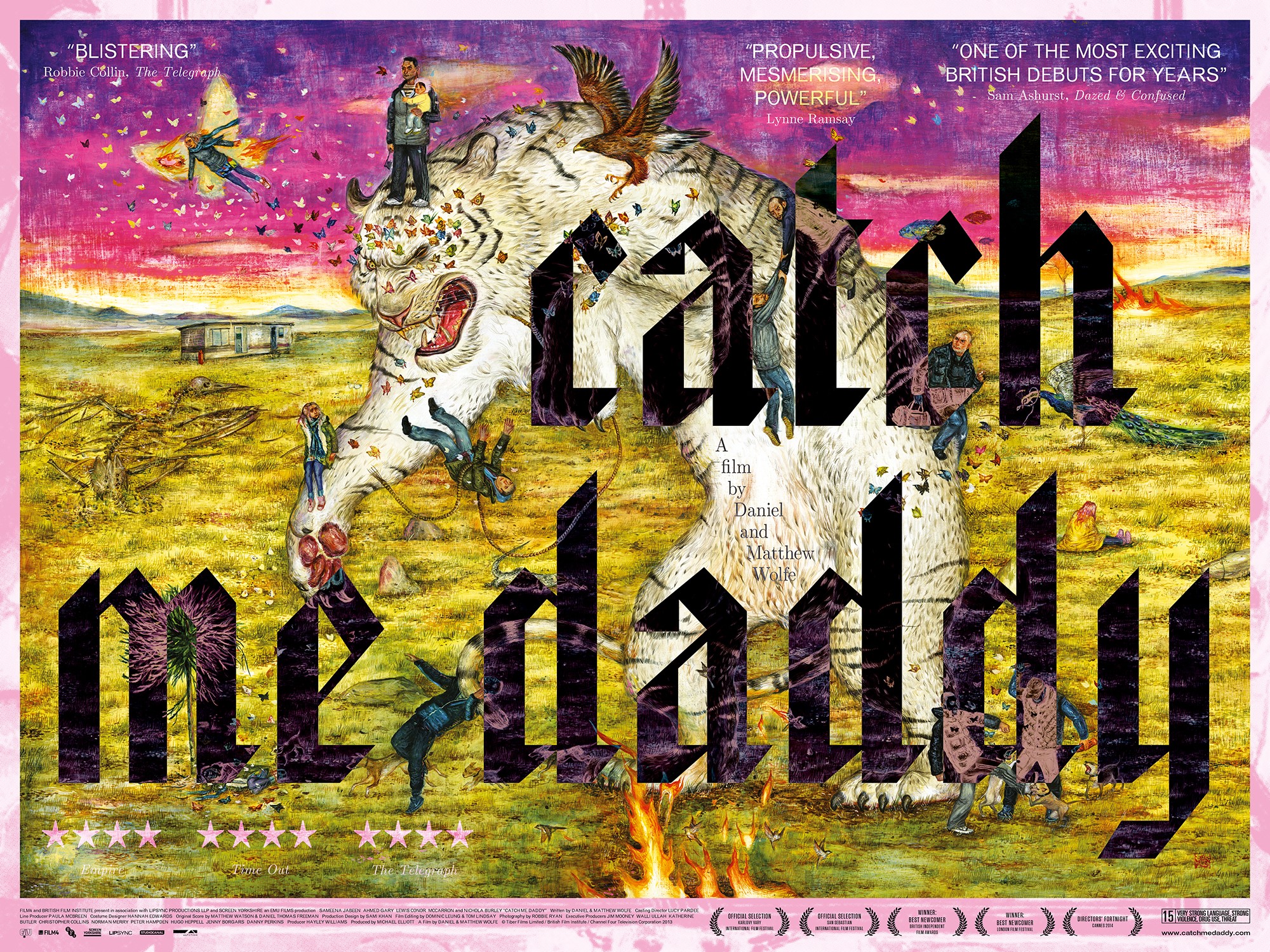
Catch me Daddy is a powerful, arresting film that blurs itself against conventions of the genre.
From producer Jim Mooney, who hosted a brief Q and A at the Chapter screening of the film, director Daniel Wolf, one half of the Wolfe brothers writing team with Matthew Wolfe, the infancy of the creating company – EMU films, both helps and hinders the film.
EMU films having previously only produced shorts lead that to one advantage – the casting of unknown’s for the film seems like an organic decision that would have come more easily from this than otherwise – but the original vision of the film was toned and trimmed, with beauty, but ultimately, according to Mooney, without the messages of the original idea.
The surprisingly unrelenting beauty of the film, amidst its harsh tone, is one of its strengths – the cinematography, a very subdued element in most ‘Brit grit’ films, or used with gritty quality, is here a major focus – giving cold beauty in harsh scenes, enhancing the choice to move the film along in real-time – in a world that is our’s, but from another side of the looking-glass; clinical blues greys and bright amber of fire giving way to a rich night.
This cinematography helps with the other unrelenting element of the film as it progresses – it’s bleakness is by no means soothed by it, but the contrast is a compelling one, when mixed with the brilliant sound design, turning the hazy noises of the every day into an oppressive soundtrack.
The lead character, Lailia, is compelling, but it’s hard to whether she is underwritten – most of the strength of character comes from the stares and expressions of debut actress Sameena Ahmed, the sense that, even in a world that takes away her autonomy, she still holds some ironic power by simply being the centre of this chaos.
Her English boyfriend, Aaron, and the thugs around her are well acted, but again, their character seems to fall down the wayside for the sheer look and scope of the film, which, given the strength of its lead, doesn’t particularly hinder the film.
One thing that could, however, is the lack of translation of motivation to the screen – whilst the ambiguity of the final shot is brilliant, the ambiguity of some characters leaves the plot muddled.
Whilst across the board Sameena has been praised, one element that has not fared so well with audiences is the portrayal of Asian men, many calling them ‘stereotypical thugs’ but given the genre of the film, its raw quality, and the motivations of white thug Barry, within context, you can see why they wouldn’t be completely developed.
But, away from context, this is a tired, problematic stereotype – one must ask themselves why this image is such a pervasive one, and why films with sympathetic Asian men are even harder to find than those of already under-represented women.
http://www.theguardian.com/film/video/2015/jan/22/catch-me-daddy-exclusive-trailer-video
Get The Chance has a firm but friendly comments policy.
